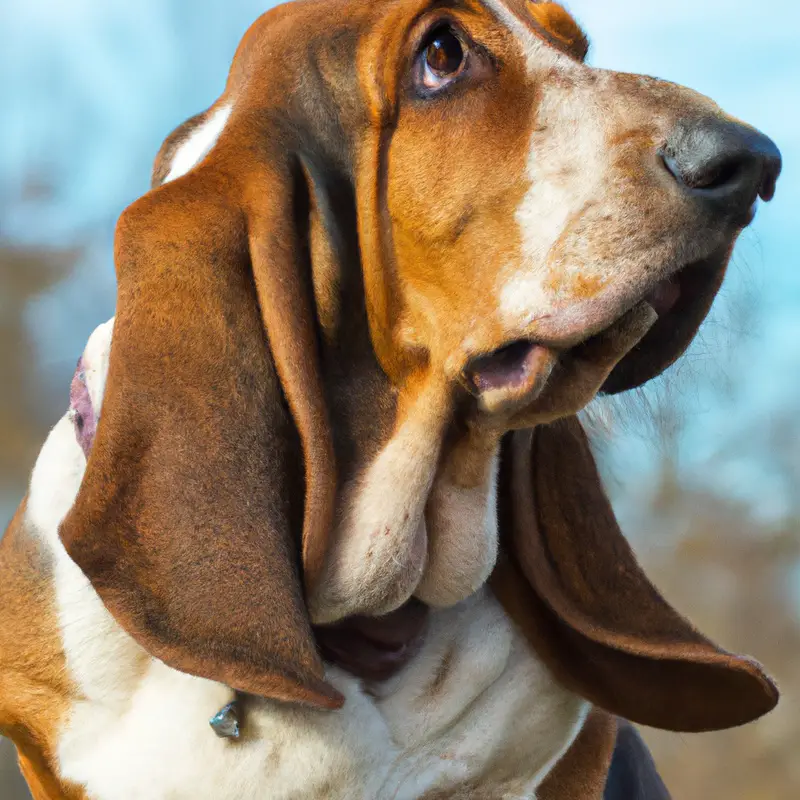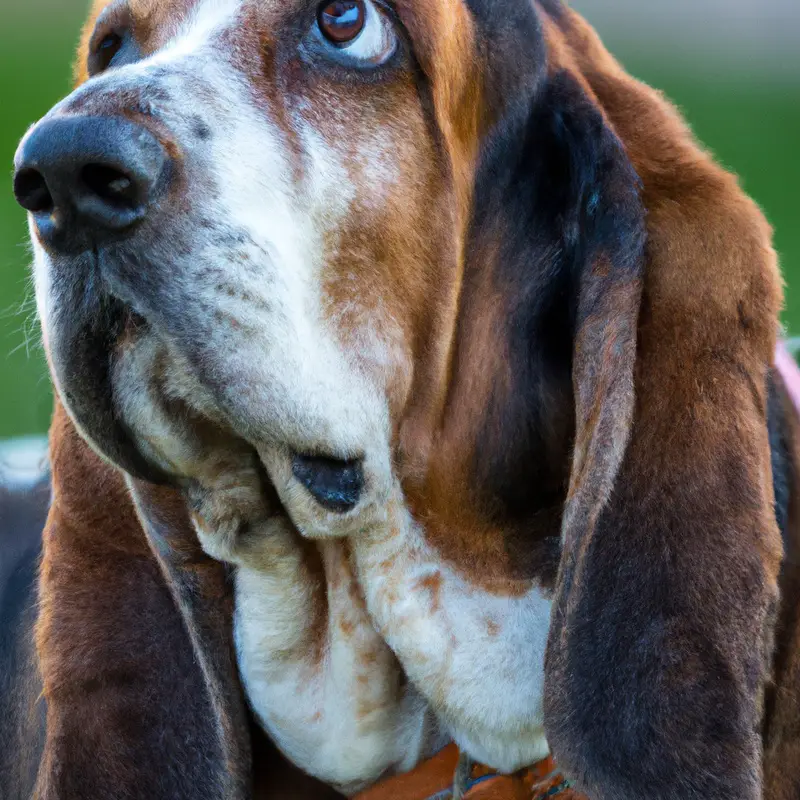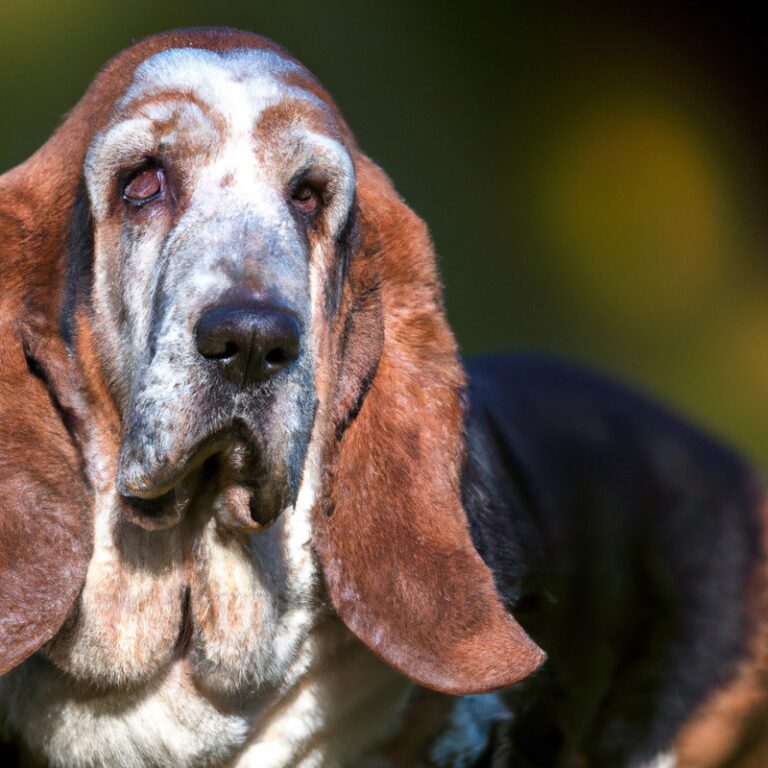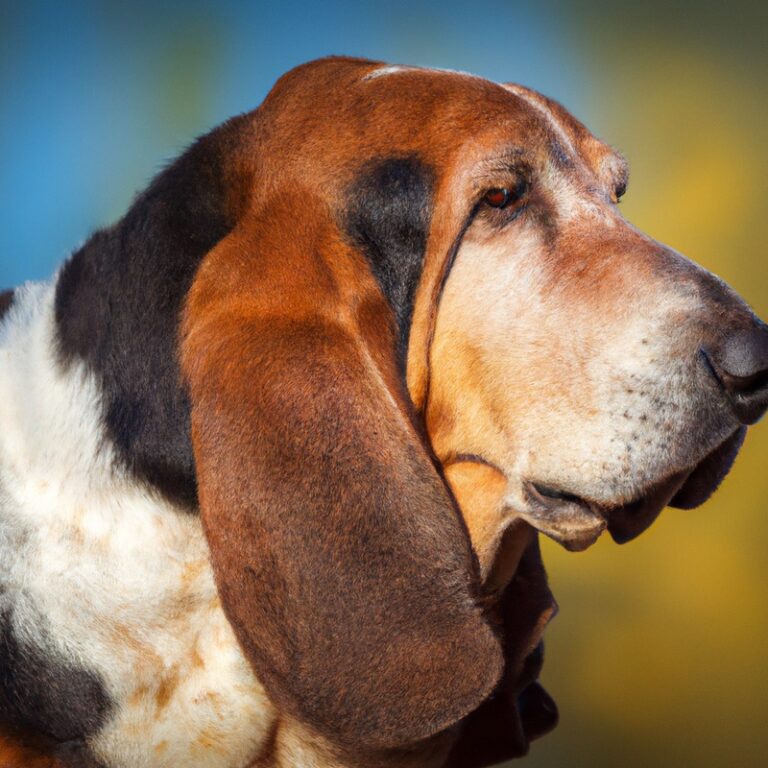Can Basset Hounds Be Trained To Be Therapy Dogs For Individuals With Anxiety Disorders?
Key Takeaways:
- Basset Hounds can be trained as therapy dogs for individuals with anxiety disorders.
- These dogs have a calm and gentle temperament, making them suitable for therapy work.
- Proper training and socialization are essential to prepare Basset Hounds for therapy work.
- Basset Hounds can provide comfort, emotional support, and a sense of security to individuals with anxiety disorders.
Are you searching for the perfect companion to help you navigate the challenges of anxiety? Look no further than the lovable and charismatic Basset Hound.
In this article, I will explore the fascinating history and unique characteristics of Basset Hounds, shedding light on why they could be excellent therapy dogs for individuals with anxiety disorders.
We will delve into the specific qualities that make them ideal candidates for this role and discuss the necessary training steps to transform them into reliable and comforting therapy companions. So, let’s embark on this journey together and discover how these delightful dogs can positively impact the lives of those struggling with anxiety.
| Question | Answer |
| Can Basset Hounds be trained as therapy dogs? | Yes |
| Are Basset Hounds suitable for individuals with anxiety disorders? | Yes |
| Are Basset Hounds known for their calm and gentle temperament? | Yes |
| Are Basset Hounds trainable? | Yes, but they may require patience and persistence |
| Are Basset Hounds generally good with people? | Yes, they are usually friendly and sociable |
| Are Basset Hounds considered hypoallergenic? | No, they are not hypoallergenic |
| Are there any potential challenges in training Basset Hounds as therapy dogs? | Yes, they can be stubborn and have a tendency to follow their strong sense of smell |
| What specific training is required for Basset Hounds to become therapy dogs? | They need to be trained in obedience, socialization, and specific therapy dog tasks |
| Can Basset Hounds provide emotional support for individuals with anxiety disorders? | Yes, their presence and affection can have a calming effect |
| Are Basset Hounds suitable for every individual with anxiety disorders? | No, suitability may vary depending on individual preferences and circumstances |
Basset Hounds: An introduction
History and characteristics of Basset Hounds
Basset Hounds have a rich history that dates back to 16th century France. They were initially bred for hunting small game, such as rabbits, due to their exceptional scenting abilities and short legs.
These dogs have a distinctive appearance, with long ears, droopy eyes, and a heavy build.
Bassets are known for their gentle and friendly nature, making them a popular choice as family pets. They are generally easygoing, good-natured, and get along well with children and other animals.
Basset Hounds require regular exercise to prevent obesity and have a tendency to follow their noses, so it’s important to keep them on a leash or in a secure area during outdoor activities.
Their laid-back personality and sweet demeanor make them a great choice for therapy work.
Therapy dogs and anxiety disorders
Explaining anxiety disorders and the benefits of therapy dogs
Anxiety disorders are mental health conditions characterized by excessive worry, fear, and unease. They can greatly impact a person’s daily life and overall well-being.
However, therapy dogs can provide tremendous benefits for individuals with anxiety disorders.
These amazing animals offer companionship, emotional support, and a calming presence. They can help reduce anxiety symptoms, lower blood pressure, and promote a sense of relaxation.
Therapy dogs also encourage social interaction and emotional connection, boosting mood and building confidence.
Their unconditional love and comforting presence can make a significant difference in the lives of those struggling with anxiety disorders.

Qualities of a therapy dog
Temperament and personality traits required for therapy dogs
Therapy dogs require specific temperament and personality traits to excel in their role.
They need to be calm, patient, and gentle, as they will be working with individuals who may be experiencing anxiety or other emotional challenges.
They should also be friendly and have a strong bond with their handler, as they will be providing comfort and support in various settings.
Additionally, therapy dogs should be adaptable and able to remain focused even in distracting or unfamiliar environments.
Their temperament and personality play a crucial role in their ability to bring comfort and healing to people in need.
Training a Basset Hound for therapy work
Steps involved in training a Basset Hound to be a therapy dog
Training a Basset Hound to be a therapy dog involves several important steps. Firstly, socialization is key.
Expose your Basset Hound to various environments, people, and animals to ensure they are comfortable in different situations.
Secondly, focus on basic obedience training. Teach your dog important commands like sit, stay, and come, as well as polite manners.
Thirdly, practice desensitization and counter-conditioning techniques.
Help your Basset Hound remain calm in anxiety-inducing situations by gradually exposing them to triggers and rewarding positive behavior. Lastly, advanced training is necessary for therapy work.
Teach your dog specialized skills and tasks specific to working with individuals with anxiety disorders.
Socialization and exposure training
Importance of socializing Basset Hounds for therapy work and exposure to different environments
Socializing Basset Hounds is essential for therapy work and exposure to different environments. It helps them become comfortable and confident in unfamiliar situations, making them more effective therapy dogs.
By exposing them to various people, places, and stimuli, they learn to remain calm and adaptable.
Socialization also improves their communication skills and ability to interact with individuals with anxiety disorders. It builds trust and enhances their overall well-being.
Regular socialization is key to preparing Basset Hounds for the demands of therapy work and ensures they can positively impact individuals with anxiety disorders.
Basic obedience training
Teaching Basset Hounds important commands and behaviors for therapy work
Teaching Basset Hounds important commands and behaviors for therapy work is essential for their success as therapy dogs. The following commands are crucial:
- Sit: Teach your Basset Hound to sit on command, as this is a basic obedience command that helps with their focus and control.
- Stay: Teaching your Basset Hound to stay in one place until given permission is important for them to remain calm and reliable during therapy sessions.
- Down: Teaching your Basset Hound to lie down on command is useful for situations where they need to be calm and relaxed.
- Leave it: This command is important for therapy dogs to ignore distractions or potentially harmful objects, ensuring the safety of those they are working with.
- Loose leash walking: Training your Basset Hound to walk politely on a leash is crucial for therapy work, as they need to remain under control and not pull or become overexcited.
In addition to these commands, it is important to teach your Basset Hound good manners, such as not jumping on people, not barking excessively, and being comfortable with being handled by different individuals. Positive reinforcement methods, such as treats and praise, work well while training them.
Remember to be patient and consistent in your training efforts.

Desensitization and counter-conditioning techniques
Strategies to help Basset Hounds remain calm in anxiety-inducing situations
Basset Hounds, like any other breed, may experience anxiety-inducing situations. To help them remain calm, it’s important to use strategies that promote relaxation.
Providing a safe and predictable environment can create a sense of security.
Additionally, incorporating positive reinforcement techniques, such as rewards and praise, can help them associate anxiety-inducing situations with positive experiences. Gradual exposure to anxiety triggers and desensitization techniques can also be effective.
Remember, each Basset Hound is unique, so it’s essential to tailor these strategies to your dog’s specific needs and preferences.

Advanced training for therapy work
Specialized skills and tasks required for Basset Hounds working with individuals with anxiety disorders
Basset Hounds working with individuals with anxiety disorders must possess specialized skills and be trained to perform specific tasks.
Some of the skills required include being calm and gentle, as well as having a comforting presence.
They should also be able to provide deep pressure therapy by leaning against or lying on the person, which can help alleviate anxiety.
Basset Hounds should be trained to recognize signs of distress and respond appropriately, offering comfort and support.
Additionally, they should be trained to maintain a relaxed and focused demeanor in various environments, helping individuals with anxiety feel safe and secure.
Certification and registration
Process of obtaining certification and registration as a therapy dog
Obtaining certification and registration as a therapy dog involves a few important steps. First, ensure that your Basset Hound meets the necessary requirements for therapy work, such as having a friendly and calm temperament.
Then, complete a training program specifically designed for therapy dogs.
This will teach your Basset Hound the necessary skills and behaviors for therapy work. After training, your dog will need to pass a evaluation to ensure they are ready to interact safely with individuals who have anxiety disorders.
Once your Basset Hound has successfully completed the evaluation, you can then register them with a recognized therapy dog organization to start volunteering in various settings.
Finding opportunities for therapy work
Places and organizations that offer opportunities for Basset Hounds to work as therapy dogs for individuals with anxiety disorders
There are several places and organizations that offer opportunities for Basset Hounds to work as therapy dogs for individuals with anxiety disorders. Some popular options include hospitals, nursing homes, schools, and therapy centers.
These places often have programs in place specifically for therapy animals and are always looking for new volunteers.
Additionally, there may be local support groups or organizations in your area that focus on anxiety disorders and would be interested in having a Basset Hound therapy dog as part of their team.
Final Verdict
Basset Hounds can absolutely be trained to be therapy dogs for individuals with anxiety disorders.
With their calm and gentle nature, they possess the qualities necessary to provide comfort and support to those in need.
Through socialization, obedience training, and specialized skills, Basset Hounds can learn to navigate anxiety-inducing situations with ease.
Certification and registration are important steps to ensure their credibility as therapy dogs.
With numerous organizations and places offering opportunities for therapy work, Basset Hounds can make a genuine impact in helping individuals with anxiety disorders.
Trust in the process and the inherent abilities of these wonderful dogs, and they will prove to be invaluable allies in the journey towards healing and well-being.







